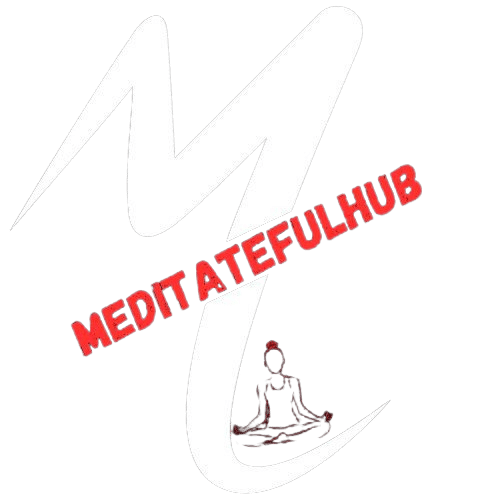Meditation is a practice that has been around for centuries, offering mental clarity, emotional balance, and heightened awareness. But how you meditate can influence the quality of your practice. One common question that arises among meditators is whether meditating in the dark enhances or detracts from the experience. For those seeking optimal methods to deepen their meditative state, this practice is worth exploring.
This blog will unpack the benefits of meditating in the dark, provide tips for doing it effectively, and help you determine if it’s the right approach for your meditation practice.
Understanding the Role of Environment in Meditation
The environment in which you meditate plays a significant role in shaping your experience. Lighting conditions in particular affect how easily you slip into a state of focus and stillness. Here’s why:
- Lighting Influences Mood: Bright light stimulates alertness, while darkness can help initiate a sense of calm.
- Sensory Stimulation Matters: Too much visual input can overstimulate the brain, making it harder to achieve meditative focus.
Many meditators use elements from their environment to tailor their practice, and lighting is a powerful factor in creating a comfortable, distraction-free atmosphere.
Why Meditate in the Dark?
Meditating in the dark offers several mental and physical benefits that can enhance the depth of your practice.
1. Encourages a Deeper Sense of Focus
Darkness eliminates visual distractions, enabling you to concentrate fully on your inner experience. Without external light competing for your attention, the mind is more likely to reach a heightened state of clarity and introspection.
2. Reduces Overstimulation of the Senses
Our modern lives are full of bright screens and artificial lighting that constantly alert our brains to external stimuli. Meditating in the dark gives your mind and body a reprieve from these triggers. It creates an environment where overstimulation fades, fostering deeper relaxation.
3. Aids in Melatonin Production
Darkness signals your body to produce melatonin, the hormone associated with sleep and relaxation. By meditating in low-light conditions, you can naturally encourage this process, making evening meditations particularly beneficial for those with sleep troubles.
4. Fosters Emotional Introspection
The absence of light provides a symbolic turning inward. You are less likely to be distracted by externalities and more able to connect with your internal emotional state. This can lead to greater self-awareness and emotional balance.
How to Meditate in the Dark
If meditating in the dark intrigues you, here’s a step-by-step guide to getting started.
Step 1: Choose the Right Time
The best time to meditate in the dark is typically early morning before sunrise or in the evening after sunset. These times align with natural circadian rhythms and can help ease you into a meditative state.
Step 2: Find a Comfortable Space
Select a peaceful, quiet space in your home where you won’t be interrupted. Ensure the area is free from distracting noises or artificial light sources. blackout curtains or closed doors might be necessary to create a completely dark environment.
Step 3: Incorporate a Timer
Losing track of time in the dark is easy, especially if you enter a deep meditative state. Use a gentle timer to structure your session without disrupting the ambiance. Choose a soft chime or gong to avoid a jarring end to your meditation.
Step 4: Use Guided Meditations
For beginners, darkness can be daunting or disorienting. If you’re new to meditating in the dark, consider following a guided meditation. Seek out recordings specifically designed for deep relaxation or introspection.
Step 5: Focus on Breathwork
Darkness encourages simplicity, making it a perfect time to focus entirely on your breath. Pay attention to your inhalations and exhalations, allowing the rhythm to guide you deeper into your practice. If your mind wanders, gently return to your breath.
Step 6: Gradually Adjust to the Experience
Meditating in the dark may feel uncomfortable at first. Start with short sessions and gradually extend the time as you become more accustomed to the setting.
Is Meditating in the Dark Right for You?
While meditating in the dark can be an enriching experience, it’s not for everyone. Here are some factors to consider when deciding if it’s the right fit for you.
Personality and Comfort Level
Some individuals are naturally more comfortable in total darkness, seeing it as a tool for introspection. Others may find it intimidating or claustrophobic. If darkness causes heightened anxiety, this practice might not be ideal for you.
Meditation Goals
Your meditation goals can also influence whether you should attempt this practice. If you’re aiming to deepen relaxation, explore your emotions, or prepare for restful sleep, meditating in darkness can be highly beneficial. On the other hand, if you’re seeking an energizing meditation, brighter conditions might be more suitable.
Experimentation
Ultimately, meditation is a deeply personal practice. The key is to experiment with different environments—including meditating in the dark—to determine what resonates with you.
Additional Tips for Success
- Use Props: If sitting in complete darkness seems daunting, light a single candle to provide a small focal point.
- Start Small: Begin with just 5 to 10 minutes of meditation in the dark to ease into the practice.
- Monitor Your Feelings: Pay attention to how you feel before, during, and after the session. Do you feel calmer? More centered? Keep a journal to track your progress.
Elevate Your Practice
Meditating in the dark offers a unique pathway to a deeper, more immersive experience. By eliminating visual distractions, fostering introspection, and aligning with your natural circadian rhythms, this practice aligns the mind and body for true clarity and calm.
If you’re unsure about where to begin, consider joining a guided meditation class or exploring curated content designed to support meditative journeys in the dark. It’s an opportunity to expand your mindfulness practice to uncharted horizons.
Take the first step today—turn out the lights, take a seat, breathe deeply, and begin your next meditative chapter.
Conclusions
Meditating in the dark is more than just a change in environment—it’s a profound shift in how we approach mindfulness and self-awareness. By prioritizing this practice, individuals can unlock deeper levels of relaxation, focus, and emotional resilience. Whether you are looking to refine your meditation routine or start a new wellness habit, this technique offers a simple yet transformative way to nurture both your mind and body. Commit to trying it consistently, and you may find yourself discovering a renewed sense of balance and connection in your everyday life.











